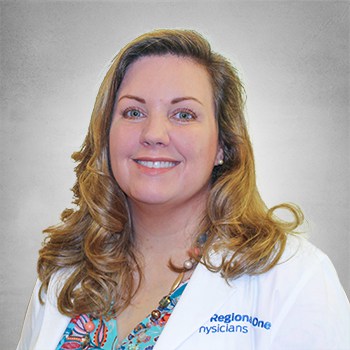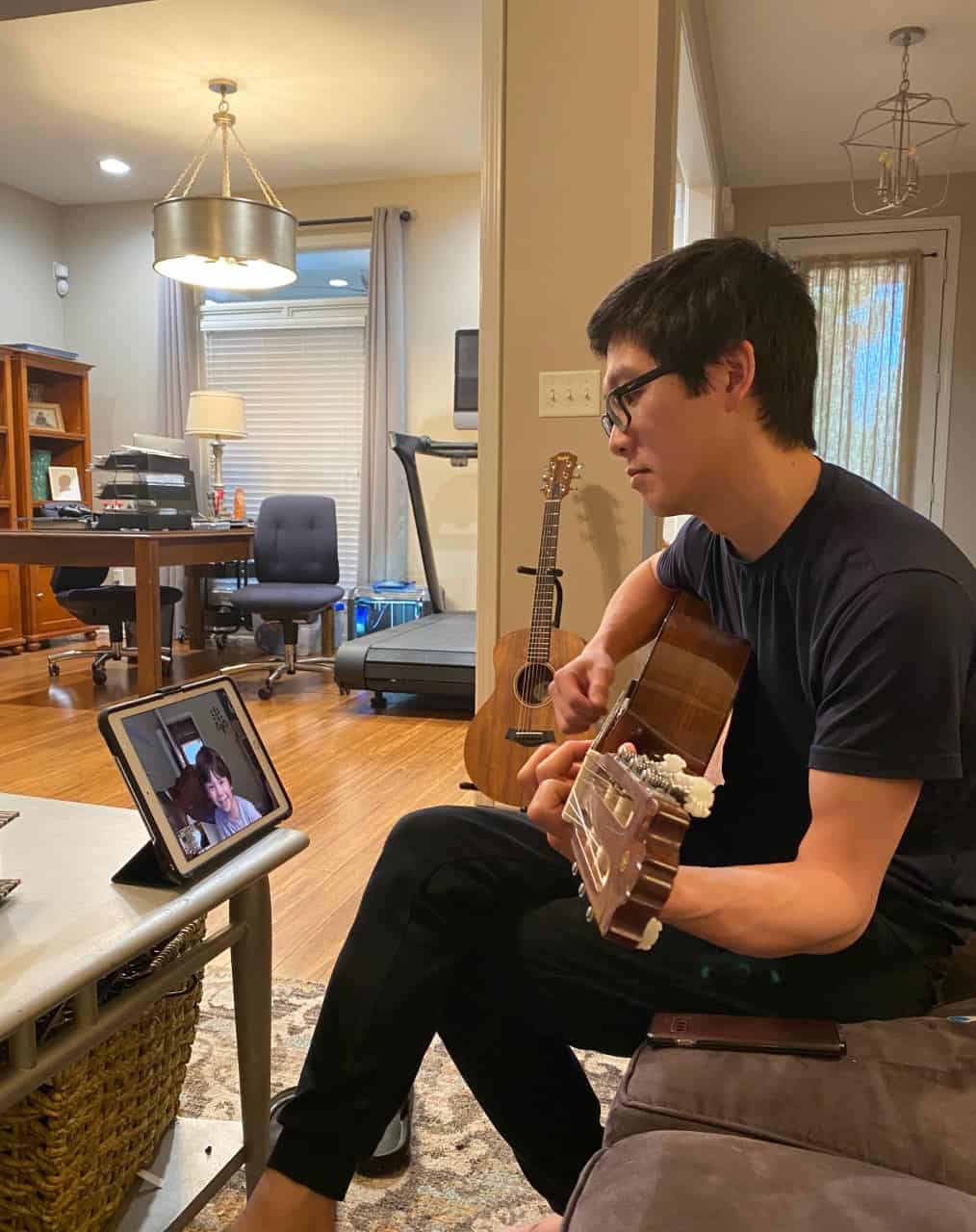Dr. Amber Thacker has always been fascinated by medical history, and it led her to a career as a hospitalist and to the frontlines of fighting COVID-19.
She was called upon to create and oversee Regional One Health’s COVID-19 Unit, which is successfully treating patients while keeping care providers safe.
Dr. Thacker acknowledges there have been personal risks and sacrifices, but says she can’t imagine being anywhere else and appreciates having the chance to help patients in their time of need.
Shortly before COVID-19 shut down the country, hospitalist Amber Thacker, MD was at a medical conference to deliver a talk. Her topic was one she’d been fascinated with since she was a child poring over medical history books: the pandemic flu.
“I’d submitted my presentation a year before and had no idea it would be such a hot topic. I had a big audience!” she laughed.
As it turns out, the talk, which analyzed medical records from how Regional One Health (then Memphis General Hospital) cared for patients in the early 1900s, set the stage for a project that would soon dominate her life – establishing the hospital’s COVID-19 unit to treat patients of the new pandemic. It’s a task that would require facing a scary virus, overseeing a huge logistical effort, and enduring significant personal sacrifice.
Each one of those hurdles met its match in the straight-forward, no-nonsense Dr. Thacker. “I’ve known my entire life there are risks for health care workers, and it never changed my willingness or want to be there,” she said. “I appreciate the opportunity to be part of it and to help people.”
Dr. Thacker’s early fascination with medical history led her to University of South Alabama for undergraduate and medical school. As she prepared for her med/peds residency, which combines internal medicine and pediatrics, she was pleasantly surprised by a visit to the Bluff City: “I never thought in a million years I’d end up in Memphis, but we just fell in love with it,” she said.
Regional One Health was a big part of the draw. It’s group of hospitalists, the physicians who specialize in overseeing the medical needs of hospitalized patients, was looking to grow in both size and stature; and the providers got to take care of a diverse mix of complex patients.

“I’ve known my entire life there are risks for health care workers, and it never changed my willingness or want to be there,” Dr. Thacker says. “I appreciate the opportunity to be part of it and to help people.”
For the past two years, Dr. Thacker has played a crucial role in both, and by the time COVID-19 emerged, her team was well-positioned to take the lead. Working with pulmonary disease specialist Scott Sinclair, MD, she created a taskforce to establish protocol for inpatient care.
“We’re a trauma center, so our hospital is very good at mass mobilization and incident command,” Dr. Thacker said. “But the inpatient part of that doesn’t normally happen, because typically a trauma crisis is over in 24 hours. We knew this wasn’t going to be over in 24 hours, so we had to create a safe, effective way to care for these patients.”
The list of challenges was endless: how to test patients, preserve personal protective equipment, sanitize rooms, transport COVID patients without exposing others, safely deliver meals, etc., etc.
But one thing that was never difficult was finding people to do the work. “To address the anxiety issue, we asked for people to volunteer to work in the unit,” Dr. Thacker said. “We’ve had plenty of people who are willing, able and excited to be a part of it.”
For Dr. Thacker, taking part was never a question – even though her personal logistics weren’t any easier than the professional ones.
“I have a 15-year-old and a 4-year-old, and my parents are my childcare. My father has heart and lung problems, so if he were to be infected, he probably wouldn’t do very well,” she said. “We decided to isolate my parents with my children, so I have not seen my children for 13 weeks. I knew I could not do my job if I was still seeing my children.”
Has it been hard? Yes. But Dr. Thacker isn’t one to dwell on that.
“I’m normally not an emotional person at all, but the first month, every time I’d drive by my parents’ house I’d cry,” she said. “But we adjusted. We FaceTime every day, and we have picnics where my sons sit on the porch and I sit on the sidewalk. I know it’s better for everyone.”
Both Dr. Thacker and her husband play the guitar, and their teenage son plays the cello. They still make music together via iPad; and her 4-year-old, in true chip-off-the-old-block fashion, is fascinated by bacteria and has plenty of questions for mom about the medical world.

Dr. Thacker and her husband Derek had to stay isolated from their children for weeks while she cared for patients. To stay connected, the avid musicians played guitar with their kids over their iPad.
That sustained family connection, plus the support of a tight-knit group of colleagues, allowed a daunting challenge to become a rewarding and successful experience.
Dr. Thacker said it’s a credit to the entire health system that her team always has the resources they need to treat patients safely and effectively. Along with essentials like personal protective equipment, they’ve been able to provide extras like iPads for patients to talk with loved ones.
Their patients have generally had good outcomes despite their fear and serious illness. Dr. Thacker is incredibly proud of the doctors, the incredible nursing team led by Nursing Director Macy Wade, therapists and everyone else who has made that happen.
“I tell our patients, ‘Everyone here volunteered. We want to take care of you.’ Having a unit with people who are calm and who want to be here is so important,” she said.
A year ago, as Dr. Thacker submitted her presentation on the flu pandemic, she never thought it would become her daily life. Now that it has, she’s more committed than ever to what drew her to medicine – a chance to use knowledge to overcome fear and help people in need.
“It’s chaotic and scary and people are frightened, but because we were able to put together a group that volunteered and wants to be here, we’ve done really well,” she said. “We’ve treated every patient with the best standard of care, and I feel really good about that.”

